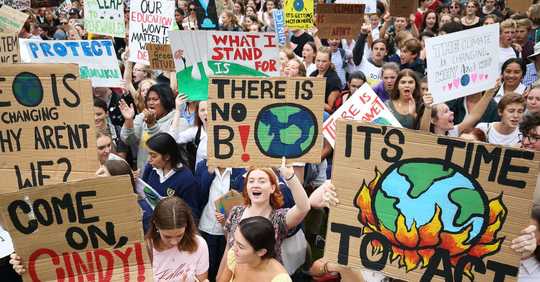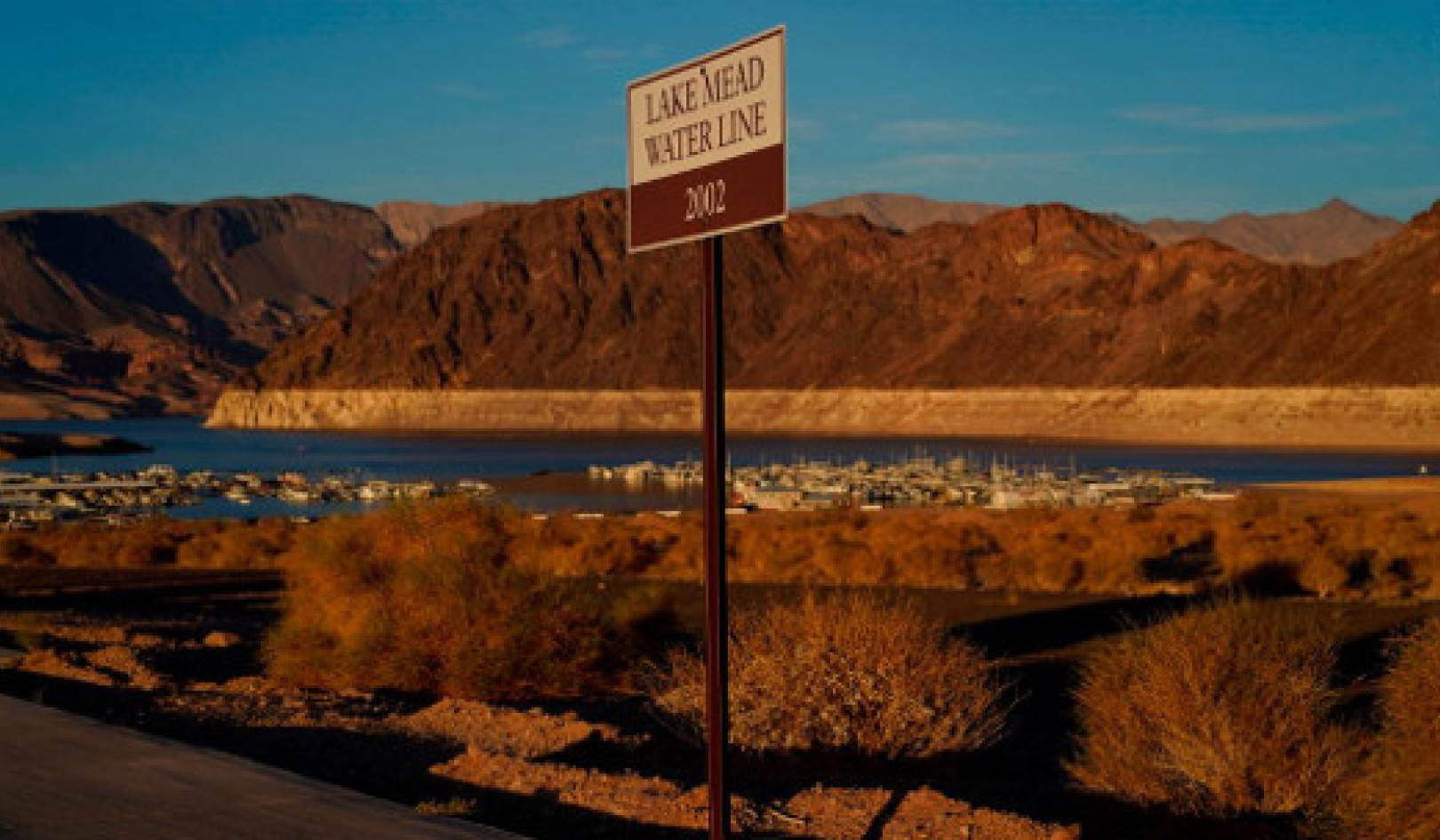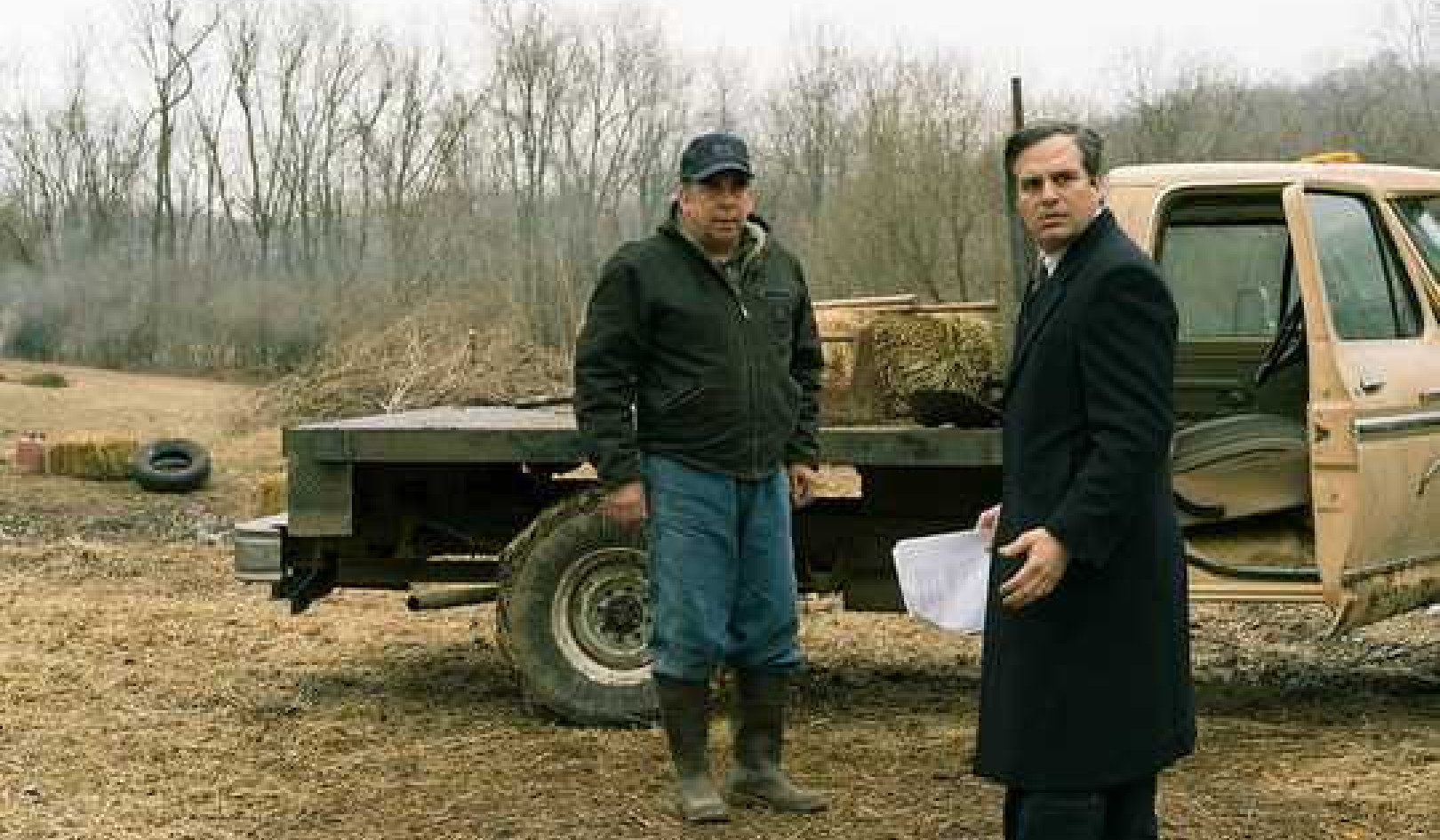
Thousands of school students across Australia joined in the global protest calling for action on climate change.
This isn’t the first time students in Australia have rallied against climate change – many took to the streets in March. But today is expected to be one of the biggest protests as they’ll be joined by others, including many workers.
The participation of our school students is a sign of how seriously they see climate change. As the organising website says:
We are striking from school to tell our politicians to take our futures seriously and treat climate change for what it is – a crisis.
By the end of this century, average temperatures on the surface of our planet are predicted to be more than two degrees Celsius or higher than today. The average level of the ocean surface could be more than a metre higher. Such changes will challenge the ways we live now.
There are plenty of evidence-based projections of future climate readily available, such as the work of the Intergovernmental Panel on Climate Change (IPCC).
But then there are denial, scepticism and misconceptions about climate change that confuse people and create unnecessary fear and anxiety, especially in school-age students.
Young people are still developing their ability to critically reason, contextualise and realistically assess risk. They are vulnerable to emotion-charged information and less likely to understand the possible agendas of people with differing ideas.
Fear and anxiety about climate change
Anxiety is a form of fear we experience when a threat is not immediate or catastrophic but has the potential to be so. It can be useful when it mobilises us to act on a problem.
Two important criteria underpin both fear and anxiety. You find yourself faced with a potentially dangerous situation that appears to be uncontrollable and unpredictable.
Either unpredictability or uncontrollability on their own can lead to a fear or anxiety response. In concert together they form a perfect storm of stress and confusion.
Looking at climate change through this emotional lens, we can certainly see the element of uncontrollability. Some climate scientists and activists believe we have started a chain reaction that is almost irreversible.
Most climate scientists are careful not to talk about predictions of future climate and favour model-informed projections. That still gives us an idea of the nature of our future world, at least for most of the rest of this century.
This knowledge encourages the perception that we can control or mitigate certain aspects of climate change. From a human point of view, this brings us some relief.
But the anxiety related to the impending climate change should not be underestimated. Some researchers list it as a top concern for population mental health.
It is therefore not surprising that many of our younger generations feel particularly anxious about the impacts of climate change.
On the one hand, teenagers are especially sensitive to fear-based messages as they have a tendency to catastrophise – they imagine the worst possible outcome.
For example, in the last century, it was the threat of a nuclear war that caused anxiety in many children.
Fast forward to today and climate change is seen as the next big threat for future generations.
How to ease the anxiety
Today’s school students know they will inherit the fallout of climate change. They will live to see their children and grandchildren doing the same. So they have reason to be concerned, and anxiety may mobilise useful action.
So what can we reasonably say to teens who are feeling shut out of the debate and experiencing heightened anxiety about their future?
Adaptation is one of the most valuable skills of the human species. Understand that we can and must adapt to the impacts of climate change.
Climate change isn’t new so we will need to work together to care for the Earth and one another. Importantly, taking an interest in understanding why and how things happen helps us to manage them (rather than sticking our collective heads in the sand and engaging in denial).
While there is genuine cause for some anxiety, a fear reaction that is out of place or disproportionate to the actual threat serves very little actual purpose other than leaving a person in great distress.
Listening to the valid concerns of school students, and engaging them in discussions about the mitigation and adaptation strategies we will need to adopt, will go some way towards easing their fears and anxieties.![]()
About the Authors
Rachael Sharman, Senior Lecturer in Psychology, University of the Sunshine Coast and Patrick D. Nunn, Professor of Geography, School of Social Sciences, University of the Sunshine Coast
This article is republished from The Conversation under a Creative Commons license. Read the original article.

Related Books:
The Future We Choose: Surviving the Climate Crisis
by Christiana Figueres and Tom Rivett-Carnac
The authors, who played key roles in the Paris Agreement on climate change, offer insights and strategies for addressing the climate crisis, including individual and collective action.
Click for more info or to order
The Uninhabitable Earth: Life After Warming
by David Wallace-Wells
This book explores the potential consequences of unchecked climate change, including mass extinction, food and water scarcity, and political instability.
Click for more info or to order
The Ministry for the Future: A Novel
by Kim Stanley Robinson
This novel imagines a near-future world grappling with the impacts of climate change and offers a vision for how society might transform to address the crisis.
Click for more info or to order
Under a White Sky: The Nature of the Future
by Elizabeth Kolbert
The author explores the human impact on the natural world, including climate change, and the potential for technological solutions to address environmental challenges.
Click for more info or to order
Drawdown: The Most Comprehensive Plan Ever Proposed to Reverse Global Warming
edited by Paul Hawken
This book presents a comprehensive plan for addressing climate change, including solutions from a range of sectors such as energy, agriculture, and transportation.























